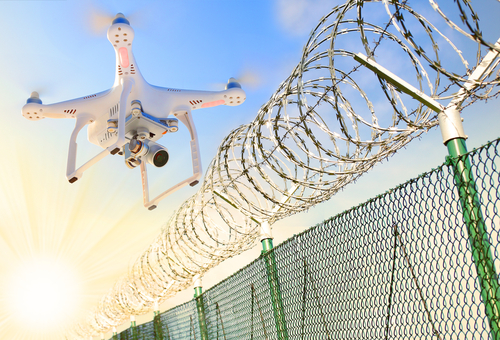It often seems like drones appeared on the scene overnight. One day, the use of drones suddenly became increasingly common. Amateur photographers, everyday business people, and even your Uncle Fred had one; it seemed that UAVs could be found anywhere and operated by virtually anyone. Fortunately, before things got too out of hand, regulatory bodies began to form and nations across the globe realised that rules and regulations were necessary to ensure the safe flying of drones.
Most of the regulations and legalities associated with drones are truly common sense. These were built off of drone safety basics, those important factors that, when followed, would help keep the skies and grounds safe for all. In Australia, the drone-related regulatory body is the CASA, the Civil Aviation Safety Authority. Let’s take a look at what CASA has to say about safe drone operation and discuss the additional basics everyone should know.
Aussie Essentials
CASA’s website has some very clear definitions of how an unmanned aerial vehicle should be appropriately flown. These are the Standard Operating Conditions that should be adhered to by every individual who intends to fly a drone in Australian airspace. These conditions apply even if you’re flying a drone for personal purposes. While those operating drones in commercial use hold the necessary certifications to step beyond the standard operating conditions, in many situations these SOC’s remain good rules to look to.
Here’s a bit of what these conditions include:
- Do not fly more than 120 m above ground level.
- Never fly within 30 meters of other persons.
- Do not fly at night.
- Only fly a single drone at any given time.
- Never fly in the area of an ongoing Public Safety operation such as an automobile crash or other emergency. (This may be bypassed under certain circumstances should you have the proper clearance from officials).
- Do not fly within 5.5 km of a controlled aerodrome.
Other Safety Basics
Australia’s Standard Operating Conditions apply in this country, but there are other safety essentials you should consider also. These are important whether you’re in Australia or abroad. If you do plan to fly a drone in another country be sure to research they’re applicable drone legalities thoroughly and fully before attempting to operate your drone in that country. In many circumstances, you may need a permit to even bring the drone into the country with you.
While the SOCs specify certain distances you should remain from people or buildings the, best safety approach is to keep your drone an even greater distance away whenever possible. Never fly your drone in questionable weather conditions, especially in high winds or storms. Avoid flying over areas of civic infrastructure such as government buildings, water treatment facilities, or power stations. The SOCs also specify that you should not fly over areas where people gather densely such as sporting ovals or public parks. If an area is not covered by the CASA official specifications always exercise common sense and err on the side of caution. It is always better to avoid areas which are densely populated.
It goes without saying, but never operate a drone while under the influence of alcohol or drugs. Always keep your drone within your line of sight when flying (this is also mentioned in CASA’s Standard Operating Conditions and dictates that your line of sight should be natural, ie. without use of visual enhancements). When flying avoid other drones or aircraft at all times and don’t fly your drone unless you are aware of its current condition. Keep your drone expertly maintained and well serviced to ensure for a safe and successful flight.
Ready to learn more about safe drone operation? If you are looking to use UAVs in your business you’ll be joining thousands of other Australians already benefiting from commercial drone usage. Total RPA is your solution for obtaining the appropriate certifications and training you need to legally operate a drone here in Australia. Get in touch today to learn more about our exceptional courses offered throughout the country.

